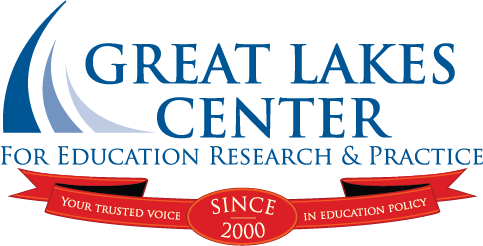
Think Twice Weekly Report
SEPTEMBER 16, 2023 - SEPTEMBER 22, 2023
The Think Twice Weekly Report compiles public education-related policy reports, research and articles of interest to policymakers, educators and stakeholders. This list is not exhaustive but is meant to highlight recent reports that may be used to support or undermine the work of our subscribers in supporting public schools. We encourage you to take a moment to scan these reports and determine if they may be used by policy makers to assist or erode your mission.
 Policy Reports
Policy Reports
Education and the Workplace
Source: Bellwether
Date: 9/21/2023
Scaling Opportunity: A Case Study on Delaware Pathways
Career pathways programs enjoy broad, bipartisan support as a way to give more young people the skills they need to thrive in today's workforce. But getting these programs off the ground can be difficult. Quickly scaling them to reach a critical mass of students and sustaining those efforts over nearly 10 years is almost unheard of - except in Delaware. The Delaware Pathways Program is recognized as an exemplar among career pathways programs across the country. Its programming includes both high school and advanced coursework, work-based learning experiences, and industry-recognized credentials that prepare students for middle-or high-skill careers. The program has grown from serving less than 1% of Delaware high school students in the 2014-15 school year to over 50% in 2021-22. We interviewed 19 stakeholders - including Delaware Pathways visionaries, researchers, nonprofit intermediaries, higher education leaders, national contributors, and K-12 administrators at the state, district, and school levels - to explore the evolution of Delaware Pathways. In our new publication, Scaling Opportunity: A Case Study on Delaware Pathways, we offer the lessons learned from these interviews, as well as policy recommendations for Delaware leaders as they embark on the next phase of Delaware Pathways.
 Reports Reviewed
Reports Reviewed
GLC seeks to ensure that policy briefs impacting education reform are based on sound, credible academic research. Below are reviews conducted with GLC support.
Teacher Prep Review: Strengthening Elementary Reading Instruction
Source: National Council on Teacher Quality
Reviewed by: Paul Thomas, Furman University
A recent report from the National Council on Teacher Quality (NCTQ) evaluates more than half of the elementary teacher preparation programs in the U.S., to gauge their effectiveness in reading instruction. A review finds, however, that the report lacks the rigor necessary to adequately inform policy or practice.
Paul Thomas of Furman University reviewed Teacher Prep Review: Strengthening Elementary Reading Instruction, and found it to repeat the patterns made in previous NCTQ advocacy reports, including cherry-picked citations, a failure to distinguish between scientific and non-scientific evidence, and misrepresentation and exaggeration of the research base.
 What We're Reading
What We're Reading
Research and articles that we want to highlight for subscribers as potential resources:
Education Dept issues details for ARP spending extension requests
By: Kara Arundel, K-12 Dive
State education agencies can now request a 14-month extension to spend American Rescue Plan money just as they were allowed to do under the first two allocations of the Elementary and Secondary School Emergency Relief fund, the U.S. Department of Education announced in a letter to state grantees Monday.
50-State Comparison: Secondary Career and Technical Education
By: Bryan Kelley, Lauren Bloomquist, Lauren Peisach, Education Commission of the States
This 50-State Comparison from the Education Commission of the States provides an overview of secondary CTE policies and activities in all 50 states and the District of Columbia to provide a comprehensive resource on states' CTE systems.
Since 2018, ransomware attacks on the education sector have cost the world economy over $53 billion in downtime alone
By: Rebecca Moody, Comparitech
While ransomware attacks across other sectors dipped in 2022, the same wasn't true in education. In fact, attacks on this industry have remained consistently high for the last four years. 2023, however, looks set to be a record-breaking year with a significant uptick in the number of attacks witnessed so far.
Why some schools are embracing gender support plans for LGBTQ+ students
By: Naaz Modan, K-12 Dive
Gender support plans - or GSPs - are detailed forms intended to "create a shared understanding among school staff, parents and a student about the ways in which the student's authentic gender will be accounted for and supported at school," according to Gender Spectrum, a national pro-LGBTQ+ nonprofit that provides support, training and guidance for schools.
Underpaid and Undersupplied: The Hidden Costs of Teaching in America
By: Emma Garcia, Melanie Leung, Susan Kemper Patrick, Linda Darling-Hammond, Learning Policy Institute
In this blog, Learning Policy Institute researchers highlight their analysis of national teacher survey data that found that, in 2019-20, 95% of public school teachers nationally spent their own money on classroom supplies without having been reimbursed, and, in every state, more than 9 out of 10 teachers incurred these unreimbursed expenses. The financial strain of being a teacher is a key force driving the teacher shortages that are, once again, complicating the start of school in many districts across the country.
